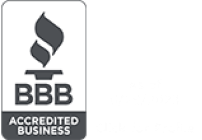It’s almost impossible to talk about real estate investing without discussing vacation rental properties. Everyone with a second home or a rental has toyed with the idea of turning it into a vacation rental. The upsides are hard to ignore:
- Higher rental income than with a conventional yearly rental
- Not being tied to the hip of long-term tenants, hoping that they pay each month
- No messy evictions
- The freedom to block out your vacation home on days that you want to use it.
- Tax breaks are associated with owning an investment property.
However, it’s not as simple as listing your home on a vacation rental platform and watching the profits roll in. Transitioning your investment or second home to compete in the crowded hospitality space needs planning, investment, and execution. Here are five strategies you can use to rent your vacation property.
1. Do your homework
As with any business, there will be competition. One of the first things a vacation rental property owner will have to research is what the competition offers and how much. Also, gauging the decor, amenities, and perks (access to a lake, boat, pool, outdoor grill, etc.) are essential to know.
2. Plan an investment
You’ll need to invest some money into your vacation rental. Before spending a penny, decide what kind of home you want yours to be. For example, would a beachy theme suffice if you’re on the coast? If your home is geared toward a college sports team, perhaps decorating the home with memorabilia and in college, colors would attract more visitors.
On the other hand, if there are no distinguishing features to note about your neighborhood, a neutral, stylish decor that would appeal to a broad swathe of visitors could be the way to go.
Once you have decided on the decor, there will need to be an investment in snacks, beds, linens, toiletries, keypad entry systems, and great interior and exterior lighting. Many owners also buy an outdoor jacuzzi.
You’ll also need to decide on whether to hire an outside management company or manage the home yourself. If you plan to do it yourself, having reliable cleaning and maintenance crews on hand is vital to your business’ success.
3. Make sure your home looks good inside and out
Don’t forget the exterior in your effort to create a welcoming interior. Curb appeal goes a long way to convincing guests to book with you, so invest in some attractive landscaping. If your home is a standalone property, consider power washing and repainting, adding or cleaning gutters and downspouts, replacing house numbers, adding new mailboxes. You’ll also need to put trash cans out of sight and add exterior lighting.
Once your home is looking HGTV-ready, it’s time to get some professional photos and even a video. Don’t rely on your smartphone. Instead, hire a pro with a high-resolution camera who can light your home correctly and do some post-production magic with Photoshop or by adding virtual staging. This is where many do-it-yourselfers fall short by penny-pinching with the photos.
Many professional management companies often include photos, professional property descriptions, and online marketing as part of their flat fee. Some might charge separately for each additional service. As these management companies often secure cheaper rates based on volume, it might be worth biting the bullet and paying for the entire marketing package.
4. Know your limits
If you own a small cottage close to your home, taking on the decorating, cleaning, and day-to-day management might be within your means. If you work part-time, are retired, or aim to make your vacation rental your full-time job this is a great way to keep occupied and earn an income
However, it’s best to hire a professional management company if you have an otherwise busy schedule. They can coordinate all the cleaning and bookings and set a dynamic pricing strategy that allows you to keep fully booked year-round. This will earn you more money in the long run than if you managed the property yourself.
5. Testimonials are golden!
Once a guest has left your home, they might forget to check on their booking app to leave a testimonial, even though they’ll receive an e-mail reminder. That’s why it’s worth leaving a note in the rental — with a simple thank you gift — to remind them to leave a testimonial. A positive review, more than anything else, will encourage other guests to book with you.
Conclusion
As with any business, you’ll need to beat the competition to succeed. That usually means spending some money. It also means leaving any sentimentality aside. If this was once your personal residence or a beloved holiday home, reinventing it as a vacation rental means taking any of your own personality out of the house. No private photos, mementos, or certificates. You’ll need to think like a hotel owner and furnish your home so that it can attract the most guests possible — whether for a theme park, sports event, or area of natural beauty. If no theme comes to mind, copy other successful vacation rentals online. There’s no shame in it — after all, imitation is the greatest form of flattery.






